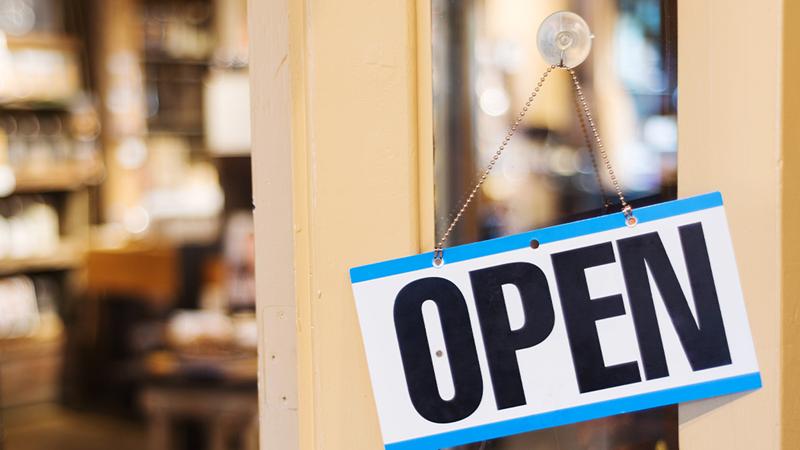
As was expected, many businesses are struggling under the conditions brought about by the coronavirus pandemic in every offline sector and industry. When even large-scale businesses are feeling the pressure, smaller local businesses have been absolutely blindsided by the pandemic.
However, as the lockdown continues to stretch longer over many months, these industries and businesses are left to try and adapt to the circumstances with varying degrees of success.
It is interesting to note how existing industries have adapted to the situation in a bid to stay afloat and maybe even prosper. As producers of non-essential goods and services have ground to an absolute halt, they have found the need to diversify and adapt, and some industries have done so masterfully, such as how the distilleries have taken to producing hand sanitizers; and fashion businesses have begun producing personal protective gear for hospitals and the public, like masks and gowns. This sets a precedent for even such industries to adapt creatively and show some resourcefulness in the face of a crisis.
This adaptation would not only allow for businesses to profit, but also build their good reputation at a time when most businesses would wind up completely. Perhaps even more interesting is how newer local businesses are benefitting from the pandemic.
Online businesses tend to flourish, and what used to be a side hustle can now become profitable enough to be their main source of income. Some people have made a living by risking themselves, securing and delivering rations to those unable or unwilling to risk stepping outside. Some others have taken to selling homemade protective masks and other sanitation products that are in great demand.
 For businesses that were just getting started before the pandemic, the lockdown allowed them to reevaluate and restructure their business. “The start-up business was gathering high momentum in Feb-March, when everything came to a halt” said Sahan Dikmadugodage, founder and CEO of Staunch, a new sports shop.
For businesses that were just getting started before the pandemic, the lockdown allowed them to reevaluate and restructure their business. “The start-up business was gathering high momentum in Feb-March, when everything came to a halt” said Sahan Dikmadugodage, founder and CEO of Staunch, a new sports shop.
“But it did help us optimize the manufacturing process, moving machinery around, to make it a free flow workspace.” This was an opinion that was also shared by Thanuka Vidanagamage, owner of Thanuk’s Vegan Café, “This situation has led to increasing interest in the concept of home cooking, with a growing interest towards a healthier lifestyle, virtual restaurants and a high demand for home delivery which has a positive impact on my business,” he said.
However, along with these rare bright spots of opportunity, there is a plethora of issues that come attached to it with no obvious solution for many industries. The primary issue most face is because of the complete halt of nearly all imports to the country.
While it is an effective solution to mitigating the spread of coronavirus, it also causes many problems for the people in all levels. Consumers have very limited access to goods now and while new businesses are scrambling to fill that gap, their ability to do so is severely hindered as they too have no access to imported raw material, a point Sahan touched on, “The government restricted imports to only essential items, so we could not get our raw material import out earlier.”
The authorities have not done much to aid them in the eyes of these small businesses, as the restrictions placed on deliveries and businesses in general have not helped them to reach the customer base they would otherwise have. “I have been given countless promises, but I’m still waiting” says Sahan.
In the short term, what this issue presents is that due to the restricted imports, there is a severe lack of consumer goods which have been deemed non-essential by the government and which has served as a wakeup call revealing our deep dependency on imports.
In the long term, however, there is a chance our nation has the opportunity to become that much more independent by seeking out local alternatives to the vacuum left behind.
However, due to the restriction placed on importing raw materials to make those local goods, the chances are extremely small and will only continue to damage any fledgling businesses. This is especially important, now that a great source of income for Sri Lanka, through tourism, will be all but nonexistent in the foreseeable future.
Ultimately, this pandemic has forced everyone to adapt to a new system that only serves as a temporary stopgap until things clear out.
However, some businesses are hopeful, like Labero, a local baby product brand, who said, “We hope this is a good era to find business opportunities for new entrepreneurs.”
In every dark cloud there is some semblance of a silver lining and hopefully people can take advantage of the absence of imports to establish local businesses not just as a replacement but a legitimate alternative. So, for the sake of a stronger economy overall even past the lockdown, it is vital that both the authorities and the nation should wholeheartedly support local businesses in this time of need.

